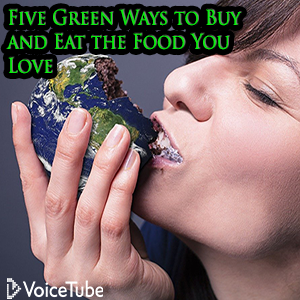Green options to shop and eat
Help our environment
Eat the food you love
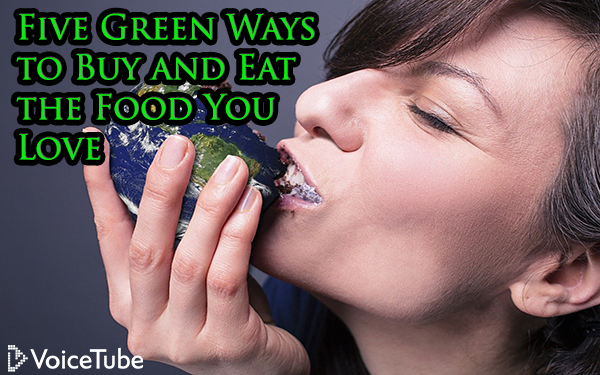
Introduction
Petroleum(1) in your packaging, plastic inside sea critters, mountains of food waste… There is certainly a lot to worry about in the 21st century when it comes to the environment and creating a “greener” lifestyle. However, there are some simple steps we can take to eat the food we love, remain healthy, and help our planet in the process. Today, we will go over five of the best ways to be green while buying and eating your favorite foods while learning some new words about the environment.
Use Reusable Bags
Plastic is an amazing invention, but it’s also one of the worst things to put in the environment. It takes 400 to 1,000 years to break down, and it doesn’t really biodegrade(2); instead, it photodegrades, meaning it breaks down into smaller toxic bits that remain in the environment for a VERY long time.
Using single-use plastic bags is one of the worst choices we can make, so we need to think of more sustainable alternatives.
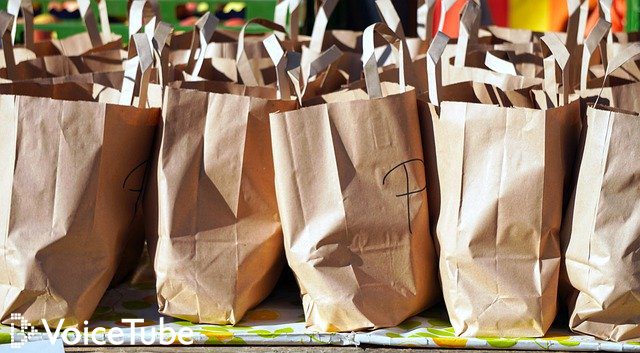
Solutions
Paper bags are a good alternative, but they are heavier than plastic bags, which means transporting them is more costly, and it requires that trees be cut down. They also tear(3) easily, so we need to use them multiple times before they rip in order for paper to be more sustainable(4) than plastic.
Other options include reusable plastic bags, cotton bags, compostable bags, and jute bags. All of these options have pros and cons, so there isn’t necessarily a right or wrong answer here, but the one truth to take out of this is that you should never use something that is “single-use.”
Eat Less Beef and Choose Sustainable Fish
Livestock emissions(5) currently make up 15% of all global emissions, with beef and dairy making up 65% of that. It might surprise you, but most of the emissions come from the cows’ burps and from their poop. Without cuts to meat consumption, livestock emissions will take up the entire carbon budget by 2050!
Fish is a healthy alternative to eating meat, but 90% of the world’s fisheries have been overfished and overexploited. Even if endangered species are not sold on the market directly, many are killed as bycatch(6) when fishermen try to catch other species.
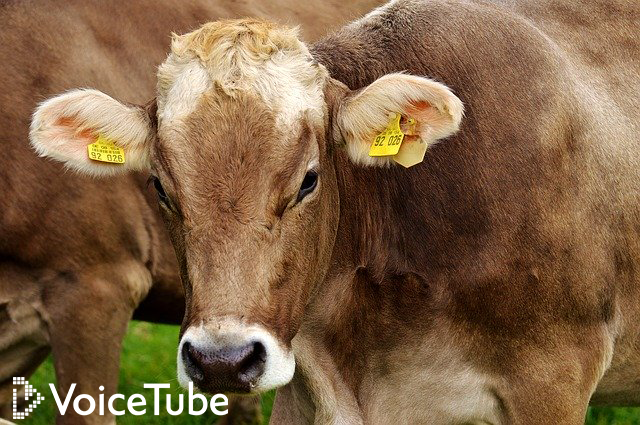
Solutions
Beef tastes delicious, but it’s also a luxury food. We should be trying to eat more white meat and fish. It doesn’t mean we can’t eat beef at all, but we should try to cut back and keep it as an occasional treat rather than a regular part of our diet.
One idea is “Meatless Mondays,” an eco-friendly idea where we avoid eating meat one or two days a week. There are tons of good proteins in other foods like beans, nuts, seeds, and certain vegetables like spinach, peas, and broccoli.
As far as fish go, we need to be careful about what we buy. Grocery stores are starting to offer sustainability charts and ratings for their fish — if they don’t have this information, there are plenty of lists online you can look at. We can positively affect the market and the return of healthy fisheries by being intelligent, conscious consumers.
Buy Local
Taking a trip to the grocery store can be a fun pastime(7). I have a lot of good memories of strolling through the grocery store and picking out my favorite food with my parents. However, grocery stores are full of processed foods and excessive packaging. According to the EPA, packages account for 23% of all landfill waste. Not only that, but a lot of their food is sourced from afar. That means more packaging, more preservatives(8), and higher transportation costs.
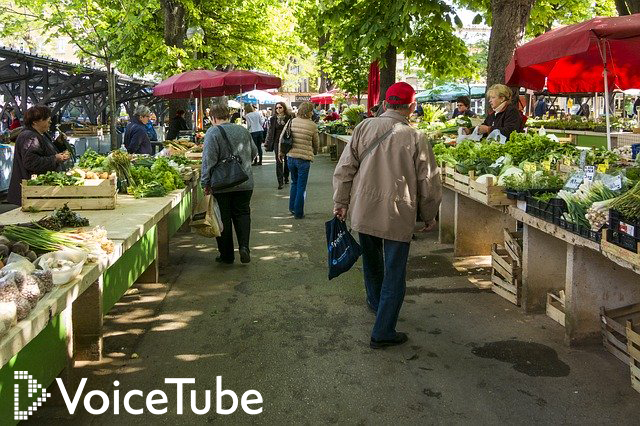
Solutions
Buy local! There are tons of farmers markets around, and living in Taiwan, I see a lot of mom-and-pop shops that sell fresh produce and various other foods without plastic bags.
Buying local can be cheaper, and it can cut out the excess plastic. It helps the local farmers, it creates jobs, and it keeps BPA–a chemical used in plastics–out of your food. So, it’s healthier, saves money, and supports the local economy.
The only con is that the grocery store is a one-stop-shop. It’s still fine to go there, but we should be trying to limit how much we buy at big grocery stores in order to cut down on waste.
Packaging, Petroleum, and BPA
It’s a sad fact that plastic is petroleum-based. Associated chemicals can seep(9) into food that is contained in plastic, and especially when the container is heated. On top of this, these chemicals leak into the environment where they can be absorbed into the ground and often end up in the water and in our oceans. This in turn affects a lot of marine species.
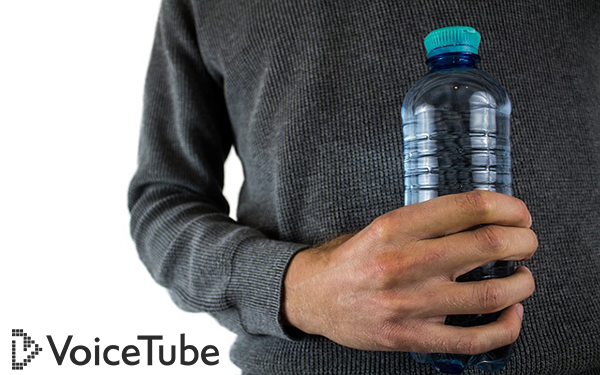
Solutions
Try to cut out as much plastic from your life as you can. This starts with buying fewer foods that come in plastic containers. Try not to store food in plastic either, as the chemicals can leak into your food. One study showed that most Americans have been discovered to have a significant amount of BPA in their bodies. (My girlfriend and I are changing over to silicone-based Tupperware as I write this!)
This is a very hard step to take because it requires that we replace our plastic with eco-friendly options. We also need to remember to bring reusable products with us when we shop and eat. However, if the rewards are less BPA in our bodies, fewer toxins in our food, and cleaner environments, the sacrifice becomes a no brainer(10).
Eat Out Less
“Even restaurants” you cry? Yes, the research company WRAP measured the total waste of the food service in the UK to be 2.87 metric tons per year. Worse yet is that Taiwan’s National Statistics database shows that only 53% of food waste was recycled in 2018. On top of that, it’s really hard to tell where restaurants get their food. Is it sustainable? Does it come from local markets or from distant suppliers in order to save money? Do they toss out a lot of food and waste?

Solution
Like most other items on this list, it’s all about moderation. Restaurants are fine, but it’s good to control how often you go out to eat. In certain countries, like the U.S.A., it’s usually cheaper to eat at home, while here in Taiwan, you can eat out every day without fear of burning through your paycheck.
It’s also about what the restaurants offer: Do they have proper dishes and silverware, or are they using all disposables? You can ask if they know where they get their meat and whether their food is sourced locally.
Eating out is definitely fun, and you should enjoy it, but try to set a goal to save more money while becoming greener by eating out slightly less often or being more selective about where you eat.
Summary
These are just five common ways you can help our environment and still enjoy buying and eating the food you love. Some of these steps can be difficult to get used to, but in the end, we all win when we have a clean planet and clean food. There are plenty of other ways to be green with your food choices, so get creative and stay green!
Could solar geoengineering counter global warming? | The Economist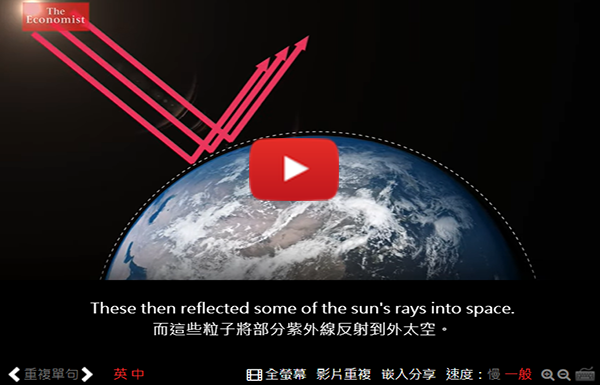
Vocabulary
1. petroleum (n.)
Def. a dark, thick oil obtained from under the ground
Ex. I know we use petroleum for fuel, but I can’t believe it is used to make this plastic my lunch box came in.
2. biodegrade (v.)
Def. to decay naturally and in a way that is not harmful
Ex. Some people say we shouldn’t throw fruit on the ground even though it will biodegrade.
3. tear (v.)
Def. to pull or be pulled apart, or to pull pieces off
Ex. The teacher tried to tear up my test when she caught me cheating.
4. sustainable (adj.)
Def. able to continue over a period of time
Ex. The only sustainable species of tuna is skipjack since they reproduce quickly.
5. emission (n.)
Def. the act of sending out gas, heat, light, etc.
Ex. Our carbon emissions are rising due to all the cattle farms we have here.
6. bycatch (n.)
Def. fish or other sea creatures that are caught unintentionally by people who are trying to catch other types of fish
Ex. Two sharks and a dolphin were killed as bycatch today.
7. pastime (n.)
Def. an activity that is done for enjoyment
Ex. Hiking and climbing mountains are my favorite pastimes.
8. preservative (n.)
Def. a chemical used to stop food from decaying
Ex. If we don’t use any preservatives, this food will spoil by the end of the day.
9. seep (v.)
Def. flow or leak slowly through a porous material or small holes
Ex. The coffee seeped into the rug, and now there is a giant stain.
10. no-brainer (n.)
Def. a decision that is very easy or obvious
Ex. We have a test tomorrow! Studying should be a no-brainer. Why have you been playing video games all day?
Sources
https://www.vice.com/en_in/article/8xyvpb/all-the-ways-restaurants-ruin-the-environment
https://www.onegreenplanet.org/environment/simple-guide-to-waste-free-grocery-shopping/
https://www.greenchoices.org/green-living/food-drink/buy-local
https://www.countryliving.com/uk/create/food-and-drink/a20730575/how-to-eat-fish-sustainably/
https://www.theguardian.com/environment/2018/dec/21/lifestyle-change-eat-less-meat-climate-change
https://www.ebpsupply.com/blog/alternatives-single-use-plastic-bags
https://www.bbc.com/news/business-47027792
https://conservingnow.com/plastic-bag-environmental-impact/
Pics
eating-world-earth-environment by reidy68
Bags-shopping-bags-paper by matthiasboeckel
Cow-allgäu-cows-ruminant by Alexas_Fotos
Market-vegetable-market by Fotoworkshop4You
Water-bottle-plastic-bottle-water by derneuemann
Girl-teen-smartphone-russian by nastya_gepp
